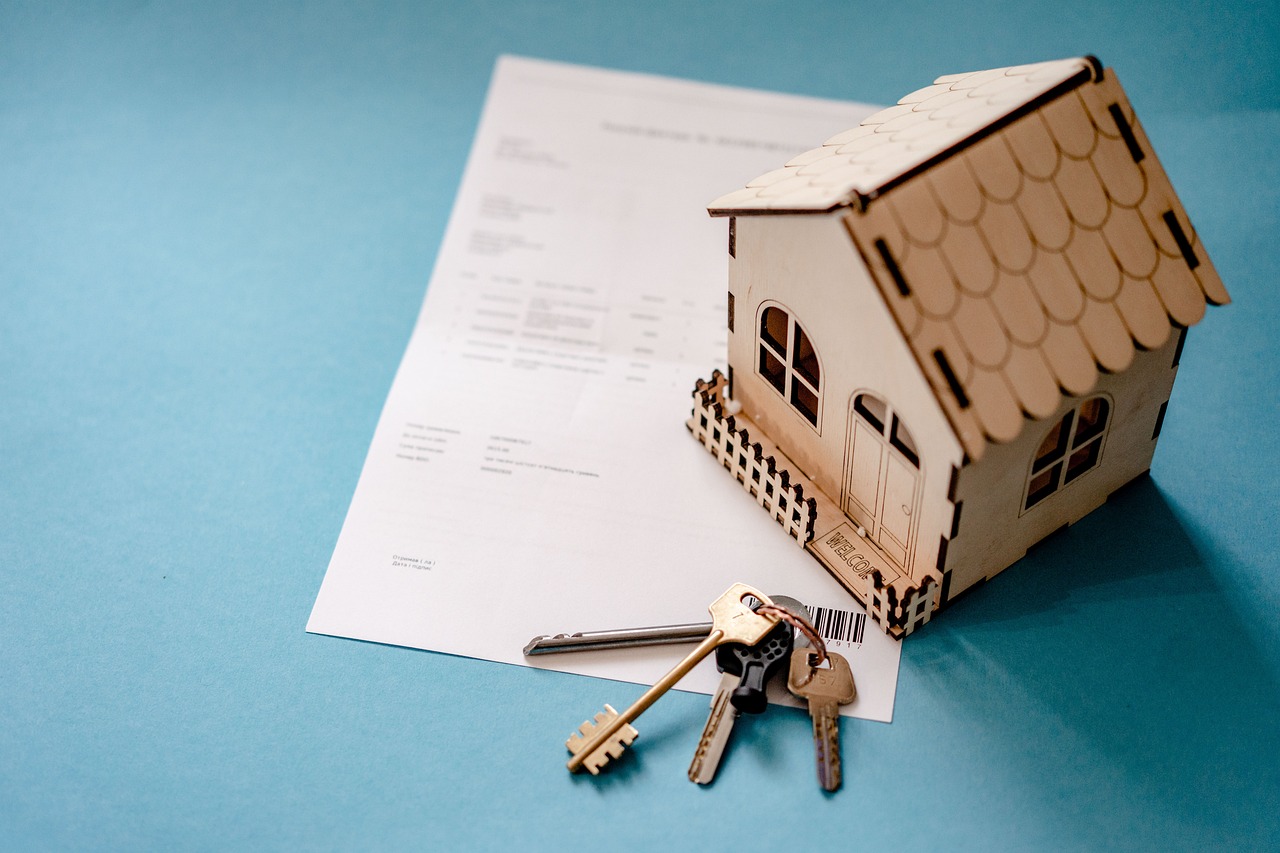Interest rate hikes can have a significant impact on the real estate market. The most direct effect is that higher interest rates increase the cost of borrowing capital, making mortgage payments more expensive for consumers. This can lead to a decrease in demand for housing, resulting in fewer sales and lower prices. Additionally, homebuyers may be forced to reduce their purchase price due to the increased cost of capital, which could put downward pressure on home values. Furthermore, higher interest rates also make it more difficult for real estate investors to secure financing and may reduce their ability to find and purchase properties at desirable prices. Finally, higher interest rates can have a negative impact on the housing construction industry as fewer people are able to qualify for mortgages, leading to decreased demand for new homes and fewer job opportunities related to building construction. In summary, rising interest rates can have far-reaching consequences for the real estate market with ripple effects that can be felt in other parts of the economy as well.
The real estate industry, reeling from the repercussions of the Federal Reserve’s aggressive interest rate policies, has sent an urgent plea to Fed Chair Jerome Powell. In a letter, the Mortgage Bankers Association (MBA), the National Association of Realtors (NAR), and the National Association of Home Builders (NAHB) implore the central bank to reconsider further rate hikes and halt the sale of mortgage-backed securities until the housing market regains stability. This move, an unprecedented direct appeal to the Federal Reserve, underscores the deep concerns within the real estate sector about the ongoing turmoil. In this article, we’ll explore how these interest rate hikes have severely impacted the housing market and why the industry is seeking Federal Reserve intervention.
The Housing Market’s Descent Amidst Interest Rate Hikes
The Federal Reserve’s policy shift, with short-term benchmark rate hikes from near 0% in March 2022 to the current 5.25%, was aimed at tackling inflation. However, this transition has had cascading effects on the housing market. One of the direct consequences was the surge in mortgage rates, which closely mirrored the increasing yields on the 10-year Treasury. As a result, the average rate on the 30-year fixed mortgage has now exceeded 7%, a 23-year high, with the possibility of reaching 8%.
This substantial increase in borrowing costs has discouraged potential homebuyers from entering the market, and it has created a dilemma for existing homeowners. Many homeowners are reluctant to sell their properties as they wish to retain their low mortgage rates, resulting in fewer transactions. This has dealt a severe blow to real estate agents and brokers affiliated with the NAR.
Impact on Home Sales and Mortgage Market
The adverse effects of interest rate hikes on the housing market are evident in the declining home sales. According to recent data from the NAR, sales of previously owned homes decreased significantly in August compared to the previous month, with a 15.3% drop from a year ago. Additionally, pending home sales, a leading indicator of future activity, plunged by 7.1% in August compared to the previous month.
This contraction in housing activity has not only affected home sales but also severely impacted the mortgage market. The Mortgage Bankers Association (MBA), representing the financing industry for both single- and multi-family loans, reported that application activity hit its lowest point since 1996 during the week ending September 29. These circumstances have forced layoffs in the industry, with notable institutions like US Bank and Wells Fargo reducing their mortgage-related workforce.
Homebuilders’ Waning Confidence
Even homebuilders, who initially enjoyed a better-than-expected spring selling season, have seen their enthusiasm wane due to interest rate hikes. Confidence among homebuilders, as reported by the NAHB, has retreated for the second consecutive month in September. This association represents over 140,000 members involved in home building, remodeling, and multi-family construction. Alicia Huey, NAHB Chairman, stated that the decline in builder sentiment coincided with mortgage rates exceeding 7%, significantly reducing buyer purchasing power.
Federal Reserve’s Stance and Real Estate Industry’s Concerns
The Federal Reserve, despite the real estate industry’s mounting concerns, has remained steadfast in its commitment to maintain higher interest rates for an extended period. Investors are left to debate the meaning of “longer” in the context of the Federal Reserve’s intentions.
Dallas Fed President Lorie Logan issued a warning this week, suggesting that if the economy remains strong, investors can expect “continued restrictive financial conditions” until the central bank reaches its 2% inflation target. Nevertheless, the real estate industry, accounting for nearly 16% of the gross domestic product, insists that further rate hikes could pose a substantial threat to the broader economy.
Seeking Stability: The Real Estate Industry’s Proposed Steps
Rather than merely voicing their concerns, the real estate industry is offering a clear set of steps to mitigate the adverse impact of interest rate hikes. These steps aim to provide the market with greater certainty about the Federal Reserve’s rate path and its plans for the mortgage-backed securities (MBS) portfolio. By reducing volatility for traders and investors, the industry believes these measures will ensure that the real estate sector does not precipitate the “hard landing” that the Federal Reserve is striving to avoid.
The real estate industry’s plea to the Federal Reserve reflects the dire situation it currently faces. The interest rate hikes initiated by the Federal Reserve have sent shockwaves through the housing market, affecting home sales, and mortgage activity, and even eroding the confidence of homebuilders. As the industry navigates through these challenging times, the proposed steps aim to bring much-needed stability to a housing market teetering on the edge. The decision of the Federal Reserve on whether to heed this plea will undoubtedly have far-reaching consequences, not only for the real estate sector but for the broader U.S. economy as well. In the coming months, the real estate industry and policymakers will closely watch the developments as they unfold.
FAQs on Real Estate and Interest Rate Hikes
- FAQ: What role does the Federal Reserve play in the real estate market?Answer: The Federal Reserve influences the real estate market through its interest rate policies. When it raises or lowers interest rates, it impacts mortgage rates and, consequently, the affordability of housing.
- FAQ: How have interest rate hikes affected mortgage rates and homeowners?Answer: Interest rate hikes by the Federal Reserve have caused mortgage rates to rise, which has made borrowing more expensive. Many homeowners are reluctant to sell their properties due to the fear of losing their lower mortgage rates.
- FAQ: Why are real estate agents and brokers concerned about these rate hikes?Answer: Real estate agents and brokers are worried because higher mortgage rates discourage potential buyers, leading to fewer transactions and affecting their commissions and livelihoods.
- FAQ: What’s the connection between the Federal Reserve’s interest rate hikes and home sales?Answer: Rising mortgage rates resulting from interest rate hikes have led to a decline in home sales. Higher borrowing costs make homeownership less attainable for many prospective buyers.
- FAQ: What is the significance of pending home sales in the housing market?Answer: Pending home sales serve as leading indicators of future housing activity. A significant drop in pending home sales suggests a potentially challenging market ahead.
- FAQ: How have layoffs in the mortgage industry been affected by these changes?Answer: The contraction in mortgage application activity has led to layoffs within the mortgage industry. Even well-established institutions like US Bank and Wells Fargo have had to reduce their mortgage-related workforce.
- FAQ: Why are homebuilders losing confidence, and how does it relate to mortgage rates?Answer: Homebuilders have seen their confidence erode as mortgage rates have surpassed 7%. This trend significantly reduces the purchasing power of potential homebuyers, impacting new construction and homebuilding.
- FAQ: How does the real estate industry suggest mitigating the effects of interest rate hikes?Answer: The real estate industry recommends that the Federal Reserve provide clarity on its rate path and plans for its mortgage-backed securities (MBS) portfolio. By reducing market volatility, these measures aim to stabilize the housing market.
- FAQ: Why is the Federal Reserve determined to maintain higher interest rates?Answer: The Federal Reserve’s commitment to higher interest rates is based on its goal of achieving its 2% inflation target. If the economy remains strong, it may continue with restrictive financial conditions.
- FAQ: What are the potential consequences of further interest rate hikes for the real estate sector and the broader economy?Answer: Further interest rate hikes could pose significant risks to the real estate sector, which accounts for a substantial portion of the GDP. A real estate market downturn could have ripple effects on the broader U.S. economy, leading to potential challenges.
Tags:
- Real Estate
- Federal Reserve
- Interest Rate Hikes
- Mortgage Rates
- Home Sales
- Housing Market
- Mortgage Industry
- Homebuilders
- Economic Impact
- Federal Reserve Policy










